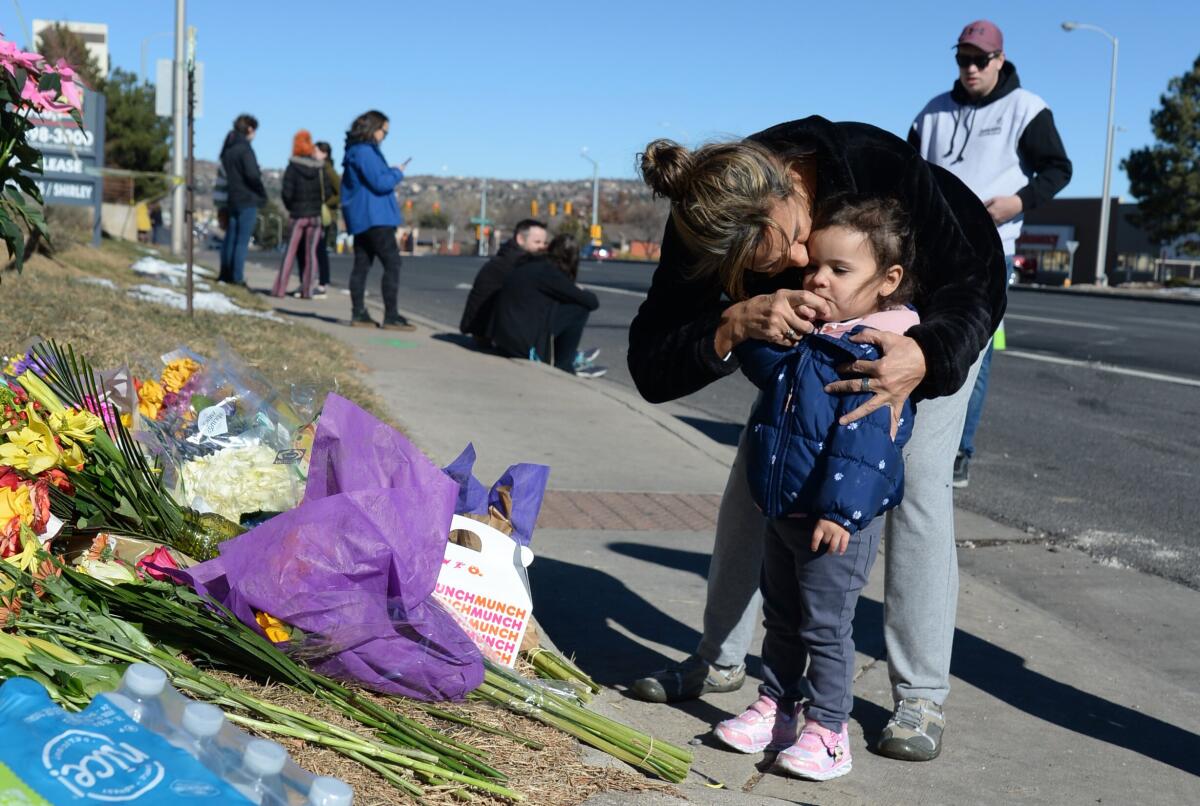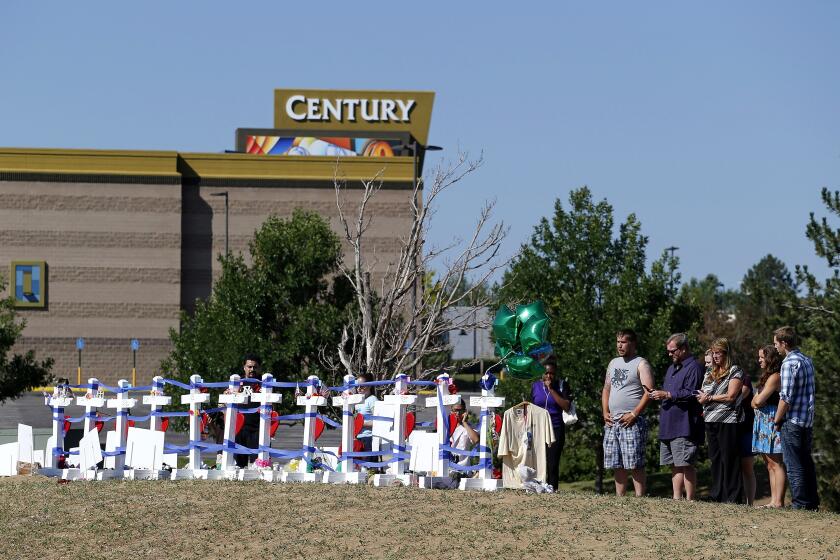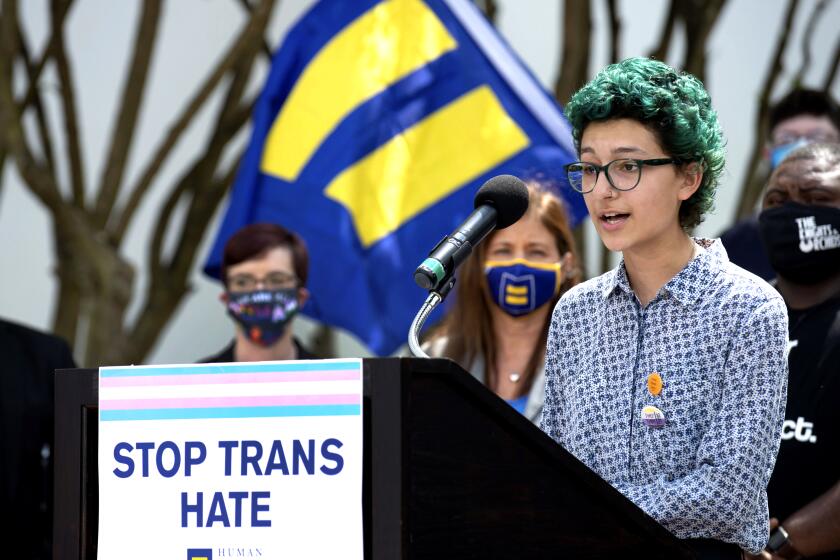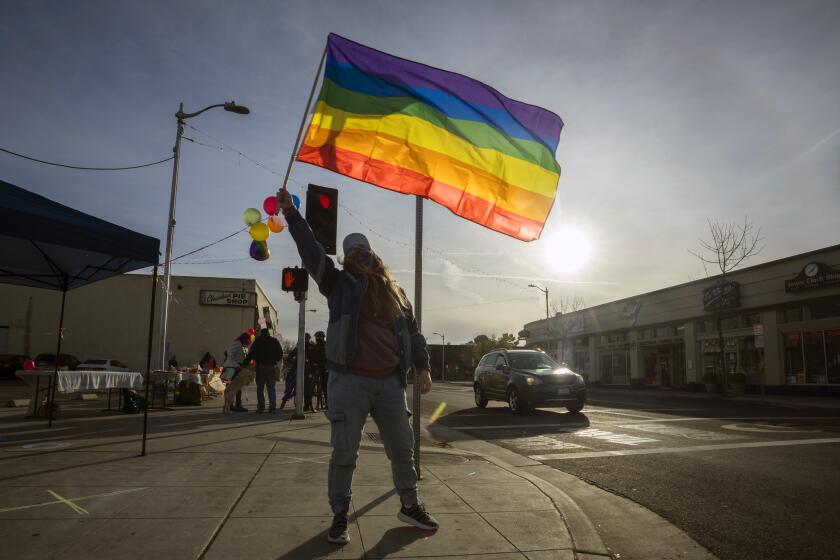Op-Ed: Club Q shooting in Colorado Springs follows six brutal years of Republican anti-LGBTQ rhetoric

- Share via
It’s 6:30 a.m., and my wife already has the news silently scrolling in the dark. “Colorado Springs,” she says. My bleary eyes focus on the carnage — again. It’s been six years since she woke me up early on a Sunday whispering “something terrible happened in Orlando.”
In 2016, in the wake of the Pulse nightclub shooting in which a young man killed 49 people, I was a lawyer at the Human Rights Campaign. I spent the day on conference calls and drafting letters to Atty. Gen. Loretta Lynch and other federal officials pleading for swift investigations and additional protection for the Orlando LGBTQ community.
Too many people killed by guns? Some folks suggest getting more guns into the hands of more people. A stunning percentage of the GOP accepts frequent mass shootings as part of American life.
At the end of that day, I just held my toddler and cried, replaying the names of the victims and remembering my own coming out in Oklahoma City’s small, joyful lesbian bars. I understood the relief these spaces carve out of an otherwise hostile horizon.
Pulse seemed unimaginable. The attack on Club Q is anything but. Although we do not yet know the killer’s motive, the target is all too familiar. This latest shooting, in which at least five people in Colorado were killed late Saturday night when a gunman once again opened fire inside an LGBTQ nightclub, follows six years in which far-right leaders have led American politics down a fearful blame spiral fueled by homophobia, xenophobia and racism.
This past election, Republican candidates ran on a platform that characterized queer and transgender people as “groomers.” They targeted the families that support them as criminals. And many of the candidates talking like this won their races. In less than a decade, the right has managed to breathe new life into an old, dangerous narrative — queer and transgender people are threats to children and to the health of the nation. This strategic scapegoating is by design. It galvanizes white, conservative GOP voters by stoking the basest of emotions — fear of erasure.
The new flood of anti-trans bills around the nation is a coordinated attack on the LGBTQ community.
Lofty American ideals like tolerance, justice and individual freedom are incompatible with the right’s demonizing narrative. There is no longer room for difference when difference is deemed a threat, especially to children. In a school board meeting in suburban Portland last week, parents railed against LGBTQ-related targeting, harassment and intimidation. But these weren’t the parents of queer or transgender youth. Instead, as one parent summed up later, the school district’s adoption of LGBTQ-inclusive materials and anti-bullying policies promoted “discrimination against people who are white, straight, Christian.” The parent asked: “Where is the equity for them?”
Morality-based fear-mongering and the characterization of minorities as dangerous enemies from within are predictable moves from an old playbook. It persists because it works. It fosters a breach from our shared humanity and incites bloodshed. Violent, fearful words breed — and sanction — action.
The Republican Party is making its anti-LGBTQ agenda quite clear and presenting voters with a stark choice.
Within days of Trump’s election in 2016, reported hate crimes skyrocketed. State attorneys general in Massachusetts, Maryland and New York created emergency hotlines to manage the flood of reports. Studies now show that Trump rallies cast a long shadow of hate-based violence, with host cities reporting a 226% increase in violence.
The far right’s emboldened, retrenched villainization of LGBTQ lives as political fodder has created a powder keg within the context of our fractured democracy. In the coming days we will find out the names of the Colorado victims, who they loved, what they dreamed. Their lives, and ours, must be valued as people, not simply specters evoked by weak leaders to frighten people to the ballot box.
Robin Maril is a professor teaching constitutional, administrative and health law at Willamette University College of Law.
More to Read
A cure for the common opinion
Get thought-provoking perspectives with our weekly newsletter.
You may occasionally receive promotional content from the Los Angeles Times.













